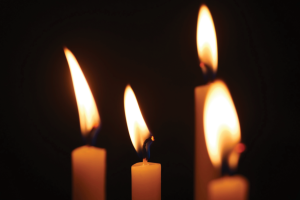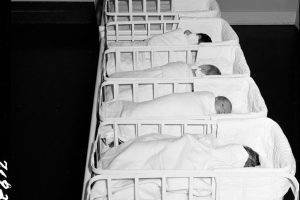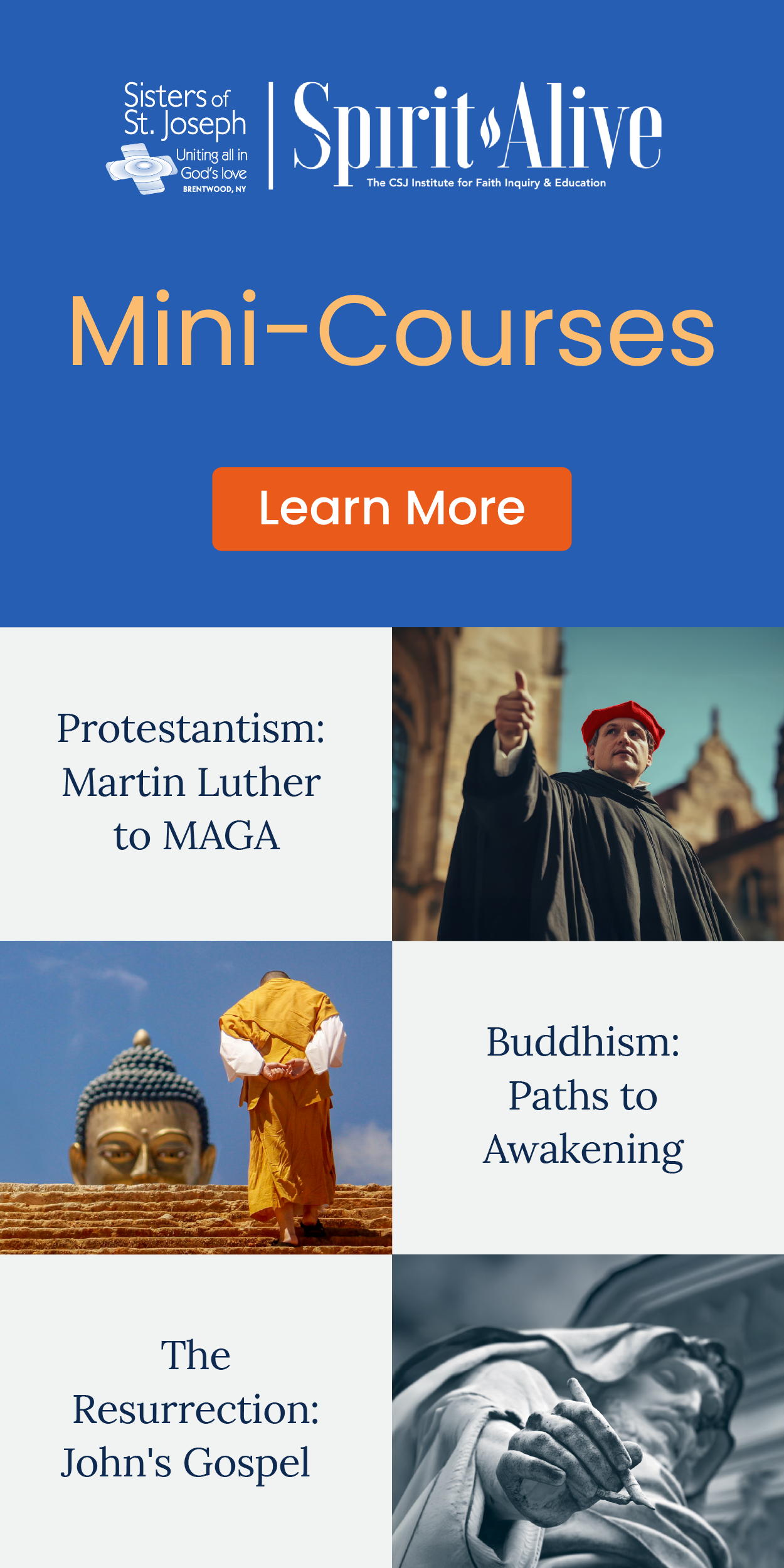What kind of changes has the 20th century brought to Catholics in the United States?
If I were a sociologist in 1900 and someone asked me to predict how Catholics would change during the next 100 years, I never could have forecast the changes that have taken place. Catholics of the 1910s and '20s and '30s tended to be blue collar, had limited educations and modest incomes, and were underrepresented in public life. There was a huge economic gap between them and, say, Episcopalians and Presbyterians. As the century went on, Catholics began moving up the social ladder, and by the 1950s and '60s they were solidly middle class. Their education and incomes matched those of the national average.
In 1965, when President Johnson lifted immigration limits, a new wave of immigrants arrived, largely from Asia, Mexico, and Central America. The majority of immigrants coming here in the past 30 years have been from non-European countries and have been largely Catholic. The church has absorbed a whole new wave of people, many of them blue collar. As that has happened, the white European Catholics have moved up further into the upper middle class. Right now the Irish, Italians, Poles, and other Catholic immigrants from the 1920s are among the most privileged people in the country. They are executives and professional people, with above-average educations, comparable now to Episcopalians and Presbyterians.
How have we changed in terms of what we believe as Catholics?
In general what we saw in the 1930s and '40s was some diversity in the midst of overall unity. Since then, of course, there's been a shift, and I would describe what we see in the '80s and '90s as some unity in the midst of increased diversity. We see more of a range of belief and practice, and part of that is because the Second Vatican Council, which was held from 1962 until 1965, authorized Catholics to think in new terms. We began to speak of collegiality among bishops and even in the local church. The church introduced new devotional practices such as private Bible reading, Bible study groups, prayer groups; these were once almost actively discouraged, but now we're invited to pursue them. Also, Catholics are more likely to question traditional teachings than they were before.
Where I think we make a mistake is assuming that diversity means we are a divided people, that we are polarized, or that there's no unity. Catholics share many beliefs that are not terribly controversial, that are not covered in newspapers and magazines, but that unite us as Catholics. These shared beliefs allow us to disagree with one another and remain family.
And what are these beliefs that unite Catholics?
They fall into several categories. Try to think of them as concentric circles. The inner circle, the beliefs most widely held, are church teachings that were not changed during Vatican II: things like the Trinity, the Incarnation, the Resurrection, the belief that Mary is the Mother of God, that bread and wine become the Body and Blood of Christ in the Eucharist. When we asked how important these beliefs were, 80 to 90 percent of Catholics said they don't just accept them but see them as a bedrock of their personal faith. These beliefs aren't hot topics, but they're the essence of the faith.
In the second circle is what we call social teachings. People told us that being Catholic involves being concerned about others, especially the poor and minorities and others who have been left behind economically. They feel that Catholics have a special responsibility to close the gap between rich and poor, that we have to be more about helping than about hoarding.
The third circle contains a set of practices that have been common among Catholics before and after Vatican II: private prayer, attending Mass, receiving Holy Communion, and the like. These numbers might not be as high as in the past, but among registered parishioners, more than 80 percent pray on a regular basis, and six out of 10 attend Mass regularly. When Catholics think of a "practicing Catholic," these are the things they think of.
Where did you find the most diversity among Catholics?
We found three areas where there is a great deal of variation among Catholics. The first is what we call pre-Vatican II beliefs, which include teachings about authority and obedience, such as whether the Catholic Church is the one true church or whether we should just obey church teachings whether we understand them or not. Catholics showed many mixed feelings about those beliefs.
Second, we asked people about ideas that have surfaced in the last 20 or 30 years, such as whether you can be a good Catholic without going to Mass or whether the church should ordain married men or women. We found that about two thirds of Catholics now agree with these ideas; about a third disagree.
I was in Baltimore recently with my Italian American wife, who's a lifelong Catholic, and in Little Italy we met an old-school Italian fellow. Here I am-the Irishman-listening to these two regular churchgoers telling each other: "You know, we've just got to ordain women." I thought, if these two traditional Catholics are having this discussion, it must be happening all over the place. Our survey showed that it certainly is.
The third area would be pre-Vatican II practices: We found that about a quarter of Catholics are saying the rosary, and about a third are involved in devotions to Mary and other saints.
What were the areas where Catholics are least in agreement with the church?
One was the area of the church's sexual or reproductive teachings. When you combine replies on homosexual activity, artificial birth control, premarital sex, and abortion, it looks as though about a quarter of Catholics are pretty much in agreement with church authorities that all of these things are wrong. That means three quarters have serious doubts about or outright object to what the church is saying. Catholics are sharply divided over the issue of homosexual activity, with 40 percent saying it's wrong and another 40 percent saying it's up to the individual to decide.
When we surveyed registered parishioners on abortion, one third said it was wrong, another third said it's usually wrong but it might be OK, and the remaining third said it's up to the individual to decide. On premarital sex and birth control, the numbers are down further, so that only 8 to 10 percent of Catholics believe what the church says about artificial birth control.
On more recent Catholic practices, such as Bible reading or participating in Bible study or prayer groups, not more than one out of ten Catholics is active. When Catholics think about practicing their faith, they still think about going to Mass and receiving Communion-not reading the Bible in a group. It's not that people oppose these newer practices, it's just that they haven't incorporated them into their sense of being a Catholic.
Do you think it's just a matter of time before they will?
No, I don't. More Catholics read the Bible privately than join Bible study groups, but Catholics are as likely to be saying the rosary as reading the Bible. My sense is that Bible study groups require verbal skills and a high level of commitment and openness. There are plenty of rock-solid Catholics, like my own father for example, who would never join a group to talk about their faith. To expect a majority of people to do that is unrealistic.
We often hear about whether people agree or disagree with the church's sexual teachings. But do you know whether the church's position actually has any influence on people's actions in this area?
One of the great moments in our focus groups was with a young man who talked very candidly about how his girlfriend had gotten pregnant, and they were trying to decide what to do. He just stopped the whole room when he said, "The fact that I was a Catholic made me and my girlfriend choose not to have an abortion." I think many Catholics struggle with those issues, and if their Catholic identity is strong, they bring a Catholic consciousness into their decisions.
You're right that focusing on agreement and disagreement doesn't allow us to see the subtleties that play a part in personal decision-making. As for the church, the more we can do to participate in the discussion at a time when it's not a crisis, the better. Let's talk about our sexual teachings during youth-ministry programs and young-adult programs not directly involved with marriage. We have plenty of opportunities to communicate what the church wants us to accept. But we have to do it with care.
How should we communicate it?
Saying the church's message over and over or just saying it louder won't persuade anyone. I think we need to foster relationships between young people and church leaders, catechists, pastors, lay mentors, whatever. It's only through relationships that you get to know people well enough that you can talk to them about the issues they face and what's the best choice in the context of their lives and their church. When we don't have a relationship, the church tries to substitute a program of some kind, such as a lecture or a pamphlet. What we really need is more relationships. A pamphlet doesn't replace a person.
Earlier you mentioned Catholic identity. How do we build Catholic identity, especially among the young?
First you need to take a close look at the behavior of Catholic people today. I would start with the areas where we know there is strong agreement and say to Catholics, "What it really means to be Catholic is that we come together around some general Christian beliefs like the Trinity, Resurrection, and Incarnation, and some specifically Catholic beliefs like the Real Presence, Mary as the Mother of God, and so on. These are the bedrock of Catholic identity. If you can embrace these concepts, then we're on the same page. We are Catholic."
After that, you have to admit there are other areas where we will have some variations based on a variety of cultural differences and social contexts. We have to talk about these, to build consensus here as best we can.
Why haven't we done this as a church?
It seems that some church leaders are inclined to go in the other direction: They take the core doctrines for granted, and they often don't celebrate the fact that young people, even though they may disagree on some things, are pretty orthodox on the core beliefs.
Instead of building our Catholic identity on that foundation, they take the issues on which we disagree and say, unless you believe these things, you're not really Catholic. I think it's a mistake to say your Catholic identity hinges on whether you believe what the church teaches about birth control or premarital sex. It draws a line in the sand, and it takes what most people would see as a marginal issue and makes it central. It's like saying to your teenager, I don't care about the fact that you love me. But if you don't agree that you have to be in the house by 8 o'clock every night, then we're not family.
Church leadership has a tendency to ignore the human side of the experience and to elevate the creedal or the doctrinal or legal dimension as what's really important. I think human beings, especially those who are marginal or struggling with the church, take that as an attempt to push them out over one particular issue.
One of the reasons that young people respond to Pope John Paul II, for example, is that he comes across as being very pastoral. He holds out his arms and welcomes them in. He knows there's disagreement, but he wants to keep them in the family.
How do people become committed to the church?
Commitment is really composed of two things. The first I would call self-concept. We tried to measure this by asking a question like, "Can you imagine being anything other than Catholic?" Or, "Could you be just as happy in some other church?" Your self-concept begins with your environment, but it also comes from how you make sense of your experiences and the decisions you make. Your parents might have been very religious, for example, but you might choose not to be.
The second factor is self-interest. People weigh the costs and benefits of what they choose to belong to. One person can look at church membership and say, it's just not worth it to me, while another will say, it's been a tremendously beneficial influence in my life. Usually self-concept and self-interest go hand in hand, so that the people who think of the church as important in their lives will also be the people who will say, I've gotten a lot out of being Catholic. And those with a more limited sense of being Catholic will also tell you that since they don't get anything out of it, why should they bother?
Commitment is a very powerful influence on people's readiness to embrace Catholic tradition.
What should this finding mean for leaders in the church?
It's natural for us in American society to talk about self-concept, our identity. We feel comfortable doing that, and I agree that we must be serious about our understanding of Catholic identity. The problem is that church leaders don't take as seriously the whole issue of self-interest, the fact that people weigh what's advantageous to them. Church people often think of self-interest as self-centered, something we need to "get over." In fact, social science would say that self-interest is an important ingredient in how people address issues.
We all calculate what's in our best interest. Laypeople do that when they decide how much money to give to the church. They ask, "Are we getting anything out of this parish?" The church can't afford to deny or ignore that or dismiss it as selfish.
Forty years ago, Catholics heard, "If you do this, you'll go to heaven, but if you do this, you'll go to hell." Wasn't that an appeal to their self-interest?
I think you're right. In the old church, fear of hell produced inflated levels of participation and high conformity because people were frightened to death. That fear was built on the notion that God's law and the church's law are one and the same.
For many young people today, these are quite separate things. Young people will say that, while they see the church's law as rigid, unrealistic, and out of touch, they see God's law as loving, compassionate, unconditionally caring. If they feel the church is judging them harshly or condemning them to hell, they'll say, "God doesn't think of me that way–God loves me unconditionally." So the fear of hell is diminished, and the love of God, which we have been promoting for 30 years, is helping young people get past that old fear.
How exactly can the church stress self-concept and self-interest in trying to build commitment?
Forty years ago it was easy to develop a Catholic identity, because Catholics were the good guys and Protestants were the bad guys. Thankfully, we're past that. We need to keep stressing the idea that we are Christians as well as Catholics.
But on the other hand we've now stressed the similarities to the point where many young people now aren't sure what it means to be Catholic.
As for self-interest, consider that my mother and her pre-Vatican II generation knew they could get anything they needed from the church. They could get a meal there, they could play basketball there, they could find a spouse there-it was all-purpose.
You find the same approach in some of today's megachurches. Willow Creek Church in Illinois has singles groups for three different age groups. If you want a date and you're 48, they'll get you one.
Today's young people aren't so sure what the church has to offer or what's distinctly Catholic in terms of the payout. Many in our focus groups said, "Why bother being Catholic as opposed to Lutheran or Methodist?"
We need to look more carefully at what makes us not only Christian but Catholic as well. What is distinctive, what can you gain from being Catholic or from marrying a person of the same faith or being a part of the Catholic community that you might not be able to get elsewhere?
Did young people see anything distinctive about being Catholic?
When we asked young people in focus groups, "What does it take to be a good Catholic?" they said, "That's not the issue-the issue is whether you're a good Christian or not." To them that meant treating people nicely, caring for others. It sounded like good citizenship.
But when we asked them if there was anything different about being Catholic, they mentioned two things. One is that the Catholic Church has a history all the way back to Jesus that makes us different from other churches–something unique and different that represents 2,000 years of tradition.
Second, they talked about how something special is going on in the Eucharist.
I would begin to build an identity based on those two statements. Remember, this is the generation that's complaining they don't know as much about the faith as they'd like, that they feel shortchanged by their religious education. Perhaps we could spend less time in homilies and religious education telling personal stories and more time talking about our history or linking scripture to the intellectual history and cultural traditions of the church. In a sense we have aborted much of our history in order to tell our own individual contemporary stories, which seems to me a missed opportunity.
None of these trends are irreversible. Nor are they cataclysmic. The church has survived for 2,000 years, and it's done that by adjusting throughout its history. All we have to do is keep making adjustments.













Add comment